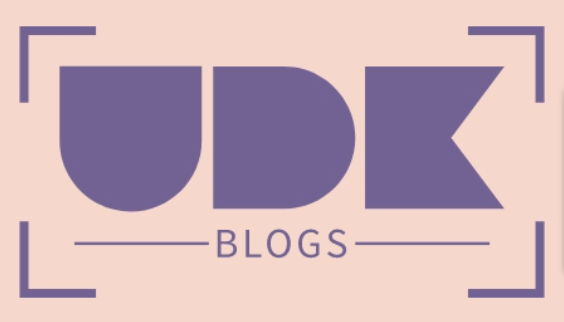As we swiftly move into the modern technological era, it becomes critical to establish mental health strategies in the digital age. This means understanding and effectively navigating the impacts of increased use of technology and digital devices on our mental health.
Navigating the Impact of Technology on Mental Health
As society becomes increasingly intertwined with the digital age, we need to recognize that the ubiquitous use of technology may have potential adverse effects on mental health. Rapidly developing technology, especially our dependence on digital devices, can lead to feelings of overload.
Coping with Digital Overload and Finding Mental Balance
Anxiety and stress related to digital overload represent significant mental health issues in society; learning to maintain a healthy balance is paramount. Techniques such as practicing mindfulness and taking regular breaks can help reduce the feelings of stress and anxiety associated with constant screen time. Discerning when to use digital devices and when to shift focus to the real world requires an adaptive approach to maintaining mental balance. Dealing with this balance between the digital and the non-digital world is a critical component of mental health strategies in the digital age.
Effectively Taming Social Media
Achieving mental wellness in the digital age is impossible without confronting the vast, complex web of social media. The omnipresence of social media in our lives, particularly among younger demographics, has magnified certain mental health issues.
Mitigating the Impact of Self-Comparison and Cyberbullying
Common feelings of inadequacy are often exacerbated on social media platforms where users are exposed to idealized versions of others. This can lead to feelings of loneliness and depression. To cope with these issues, it’s crucial to remind oneself that social media doesn’t always reflect the realities of real life. Drawing this distinction can help maintain good mental health despite potential pressures from social media.
Similarly, cyberbullying is a damaging phenomenon that can occur on media platforms. Individuals must be proactive in setting boundaries online, reporting offensive content, and protecting their mental health in the digital world.
Promotion of Digital Kindness and Setting Boundaries
Promoting respectful interactions in the digital world and setting boundaries with friends and family is a pillar of maintaining mental health in this predominantly digital era.
Addressing Online Harassment and Fostering Real-World Connections
Online harassment is an unfortunate repercussion of the digital age. However, setting boundaries and ensuring respect for others’ rights reserved in digital spaces can counteract this. Providing support and seeking professional help if needed are vital steps for addressing such harassment.
Meanwhile, fostering real-world connections is essential for mental health. Digital interactions should complement, not replace, physical interactions. This holistic approach to maintaining mental health is especially crucial in our digital era.
Embracing Digital Detox for Mental Wellness
In the world where digital devices are causing stress, it’s essential to schedule a digital detox as a part of maintaining mental health strategy.
Managing Information Overload and Prioritizing Self-Care
Information overload from continuous screen time can cause mental health issues, elevating stress levels, and feelings of inadequacy. To combat this, it’s crucial to set time limits; often disconnect from the digital world, and prioritize self-care.
Strategies such as regular breaks, mindfulness exercises, and real-world interactions can help individuals maintain a healthy balance and reduce stress.

Leveraging Digital Tools for Mental Health Support
While the digital age can present mental health challenges, it can also provide solutions. The digital world can be wielded to access mental health apps and connect with others for support, potentially filling gaps in traditional mental health services.
Seeking Professional Help and Cultivating Resilience
Ensuring technology use serves our mental health involves being aware of the potential risks and benefits. Struggling individuals should seek professional help, which is increasingly available through digital channels. Meanwhile, cultivating resilience can be achieved by connecting with supportive communities online, using mental health apps, and staying informed about health in the digital age.
Understanding the Dark Side of Social Media and the Digital Divide
While the use of technology and social media can often promote connection, the fear of missing out (FOMO) and disparities in access to technology can exacerbate mental health issues.
Fear of Missing Out and Impacts on Mental Health Disparities
The pervasive fear of missing out as a result of social media use can have a detrimental impact on mental health. Simultaneously, the digital divide—inequitable access to technology—can have significant mental health effects, isolating individuals and denying them access to digital benefits that could support their mental health. Awareness and policy measures can help alleviate these problems.
The Importance of Digital Literacy in the Digital Age
To make the most of the digital age without allowing it to damage our mental health, we need to improve our digital literacy.
Enhancing Mental Health Services with Digital Solutions
As we move further into the digital age, mental health services must adapt accordingly. Digital solutions, such as mental health apps and online therapy, can potentially revolutionize how we address mental health issues.
In conclusion, maintaining mental health in the digital age demands awareness, balance, and proactive measures. All have to ensure they take care of themselves in digital spaces, understand the reality behind the perfectly curated posts on social media, and use various tools and strategies to enhance their mental wellbeing. It’s crucial to remember to save my name, email, and website in this browser for the next time I comment and always be aware of the potential fallout from overexposure to digital platforms.
Key Approach to Mental Health in the Digital Age:
With the right mental health strategies in the digital age, it is possible to leverage digital tools while mitigating the potential risks, thus unfolding a healthy balance.

